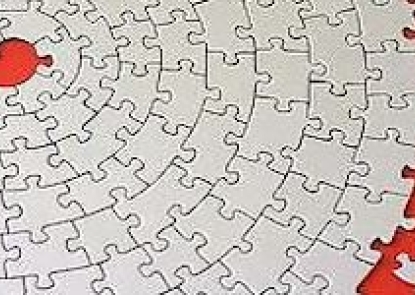Johns Hopkins Alzheimer's Disease Resource Center for Minority Aging Research

Welcome Three New RCMAR Scientists
The JHAD-RCMAR is pleased to announce the selection of three new 2022-2023 Johns Hopkins University RCMAR Scientists.

Recent Publication
Congratulations Dr. Amal Wanigatunga (Cohort 2 RCMAR Scientist) on his recent publication "Wrist-worn accelerometry, aging and gait speed in the Baltimore Longitudinal Study of Aging." in the Journal of Aging and Physical Activity.

Recent Article
Congratulations Dr. Marino Bruce (Cohort 4 RCMAR Scientist) on his latest article "Religious service attendance and mortality among older Black men."
The Johns Hopkins Alzheimer’s Disease Resource Center for Minority Aging Research (JHAD-RCMAR) is a collaborative effort between the Johns Hopkins Bloomberg School of Public Health, the Johns Hopkins School of Medicine, and the Johns Hopkins School of Nursing.
The Center is based in the School of Public Health and is one of the Alzheimer's disease-focused Centers coordinated by the Resource Centers for Minority Aging Research (AD-RCMAR) and funded by the National Institute on Aging.
The JHAD-RCMAR aims to train and support early-stage investigators from under- represented backgrounds who are carrying out Alzheimer’s disease and related disorders (ARDR)-relevant research that supports cognitive health and well-being in minority older adults, with the long-term goals to:
- Enhance the diversity of the aging research workforce by mentoring promising scientists from under-represented groups for sustained careers in minority aging research in priority areas of social, behavioral, and economic research on aging, and;
- Develop infrastructure to promote advances in these areas while simultaneously increasing the number of researchers focused on health disparities and the health and well-being of minority elders, within a framework that encompasses individuals, families, social networks, neighborhoods, and communities.
The JHAD-RCMAR capitalizes on an outstanding interdisciplinary environment at Johns Hopkins University for research, training, and mentoring to emphasize epidemiological and intervention research with a life course perspective on ameliorating health disparities by advancing minority aging research as it is related to ADRD. It is expected that JHAD-RCMAR supported studies will establish preliminary data and generate peer- reviewed manuscripts in high-impact journals that lead to substantive, long-term externally funded research portfolios.
Our research, training, and community-based activities are implemented through four interacting components: the Administrative Core, the Research Education Component, the Community-Liaison and Recruitment Core, and the Analysis Core. The JHAD- RCMAR is funded by the National Institute on Aging (NIA) grant P30AG059298.
Our Work

Administrative
The Administrative Core provides essential leadership and structure for the JHAD-RCMAR.

Research Education
The REC largely focuses its efforts to build an infrastructure necessary to recruit, develop, and support under-represented minority investigators.

Community
The public health impact of interventions for slowing cognitive decline and reducing dementia risk in minority older adults is often not realized because stakeholders have not been involved in the development of preventive strategies or interventions intended for them.

Analysis
The Analysis Core is focused on empowering the JHAD-RCMAR with quantitative support and strong statistical expertise.


